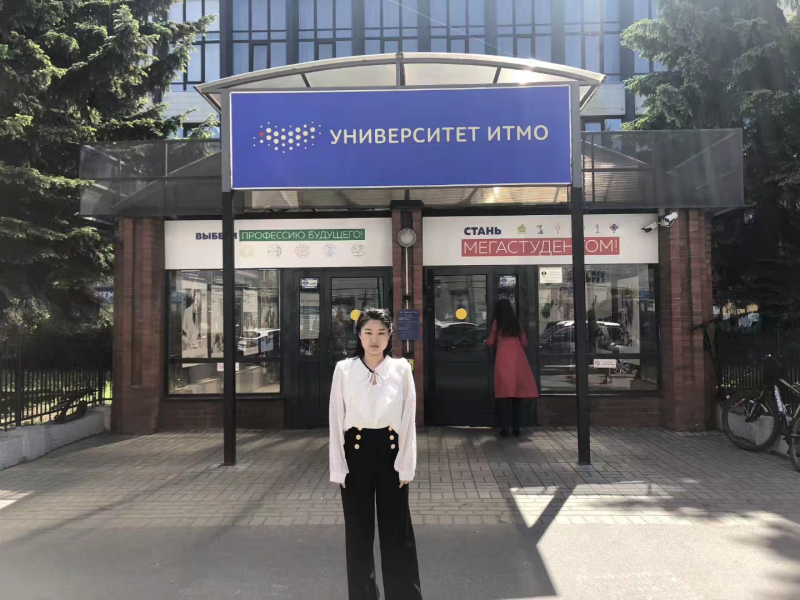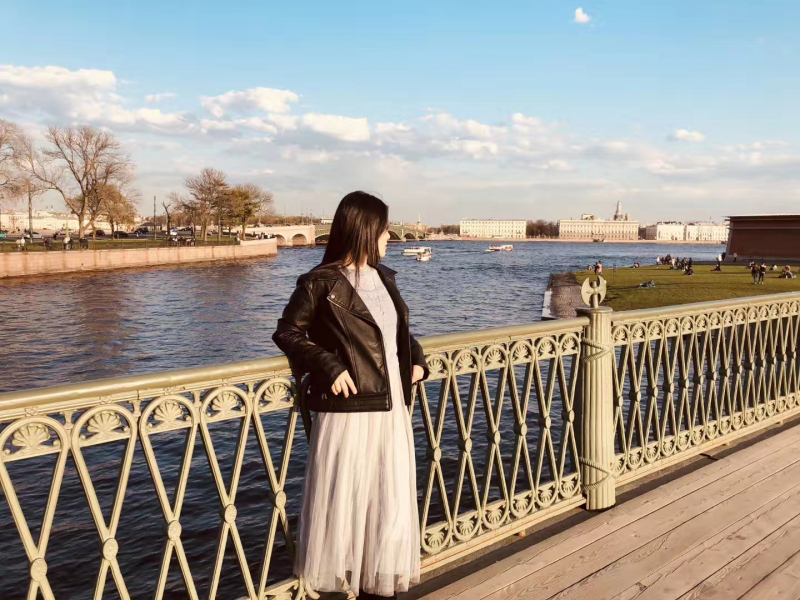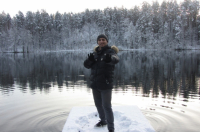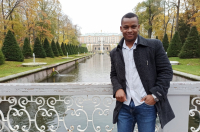Originally from Hulunbuir city in the Inner Mongolia region of China, Cheng grew up just over 100 km away from the Russian border. When she was young, she listened to her family discuss various aspects of Russian life, its history and culture, thereby growing interested in the country since her childhood.
Cheng started her Bachelor’s degree at Beijing University of Technology, where she also studied Russian. These skills came in handy when two years later she joined ITMO University to complete her Bachelor’s at the Faculty of Software Engineering and Computer Systems.
When asked about any tips on practicing and improving Russian language skills, she says, “I think that learning Russian or any language consists of reading a lot. Communicating with the native speakers of the language is also extremely useful. I think it helped me a lot that I learned the basic grammar of Russian while still in China, because the local teachers helped me to understand the difficult parts of Russian grammar better.”
Graduation is always a wonderful time, and Cheng says that graduating from her Bachelor's studies and being accepted into the Master's program was the best part of her university experience.
“After completing my Bachelor’s degree, I decided to apply for a Master’s program in FoodTech which is taught in cooperation with Beijing University of Technology,” explains Cheng.

The Master’s program is offered in English, so she was happy to further develop her English language skills during these two years. Since childhood, Cheng has dreamed of studying abroad, regardless of her major. “I wanted to learn the culture of different countries, I think it’s very interesting,” she explains.
Due to the pandemic, she’s currently studying remotely from Tangshan, China, where she lives with her family. However, she hopes to return to Russia as soon as things improve. “Online learning is very good because no matter where the students and teachers are, we can have classes anywhere. It’s great to have this flexibility,” she shares.
She also hopes to pursue a PhD in St. Petersburg after completing her Master’s degree. “I want to continue living in St. Petersburg and be able to stay in this city that I like so much and that already feels so familiar to me. I also aspire to make more friends from different countries and learn from them and their cultures,” adds Cheng.
To all those thinking about studying in Russia, she says: “Don't be shy, be brave! Language learning is never something you can do if you are shy. Reading and listening is very important!”
Interview taken by Juan Sebastian Velasquez Acevedo




